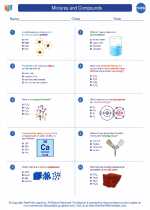Excretory System
The excretory system is a crucial part of the human body responsible for removing waste and regulating the body's fluid and electrolyte balance. It consists of several organs and structures that work together to eliminate waste products from the body.
Organs of the Excretory System
- Kidneys: The kidneys are the primary organs of the excretory system. They filter the blood to remove waste products and excess substances, producing urine as a result.
- Ureters: These are thin tubes that carry urine from the kidneys to the bladder.
- Bladder: The bladder is a hollow, muscular organ that stores urine until it is expelled from the body.
- Urethra: This is the tube through which urine is expelled from the body.
Functions of the Excretory System
The excretory system performs several important functions, including:
- Waste Elimination: The system removes metabolic waste products such as urea, creatinine, and excess ions from the body.
- Fluid Balance: It regulates the volume and composition of body fluids to maintain proper hydration and electrolyte levels.
- Acid-Base Balance: The excretory system helps regulate the pH of the body fluids by controlling the excretion of hydrogen ions and bicarbonate.
- Blood Pressure Regulation: The kidneys play a key role in maintaining blood pressure by controlling the volume of blood and the concentration of electrolytes in the body.
Key Concepts to Study
When studying the excretory system, make sure to focus on the following key concepts:
- The structure and function of the kidneys, including the nephron, the functional unit of the kidney.
- The process of urine formation, including filtration, reabsorption, and secretion within the nephron.
- The role of hormones such as antidiuretic hormone (ADH) and aldosterone in regulating water and electrolyte balance.
- Disorders of the excretory system, such as kidney stones, urinary tract infections, and kidney failure.
Study Tips
To effectively study the excretory system, consider the following tips:
- Use diagrams and visual aids to understand the structure and function of the kidneys and nephrons.
- Practice tracing the path of urine from its formation in the kidneys to its expulsion from the body.
- Understand the role of key hormones in regulating the excretory system and how they contribute to maintaining homeostasis.
- Review common disorders of the excretory system and their causes, symptoms, and treatments.
◂Chemistry Worksheets and Study Guides High School. Mixtures and Compounds
Worksheet/Answer key Mixtures and Compounds
Mixtures and Compounds  Worksheet/Answer key
Worksheet/Answer key Mixtures and Compounds
Mixtures and Compounds  Worksheet/Answer key
Worksheet/Answer key Mixtures and Compounds
Mixtures and Compounds 

 Worksheet/Answer key
Worksheet/Answer key
 Worksheet/Answer key
Worksheet/Answer key

The resources above cover the following skills:
Chemistry II
Properties of Matter
Develop and use models to explain the differences between chemical compounds using patterns as a method for identification.
Use mathematical representations to quantify matter through the analysis of patterns in chemical compounds.